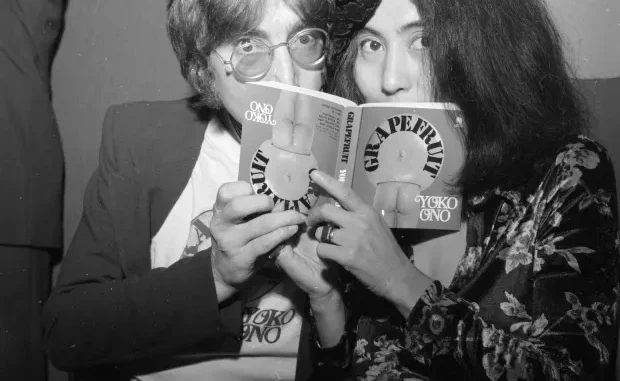
Controversial Rock Icon Once Accused a Beatle of Stealing His Song
‘They gave themselves writing and publishing credit on it, stuck it on an album and never paid me.’
Those who gathered at New York City’s Fillmore East on June 6, 1971, were treated to a once-in-a-lifetime moment: Frank Zappasharing the stage with John Lennon. Here were two counterculture icons, joining forces and joining voices: Zappa, known for unleashing anti-establishment, avant-garde-infused rock, genius orchestral arrangements, and an outrageous (and sometimes obscene) stage show with the Mothers of Invention; and Lennon, the Beatle, performing just a few months before he’d release his landmark album, Imagine.
You think they’d get along. But four songs and one live album later, Zappa would be left seeing red, accusing Lennon and Yoko Ono of ripping off one of his compositions. “They changed the name of the song…gave themselves writing and publishing credit on it, stuck it on an album and never paid me,” Zappa would scornfully say, a decade after it all went down.
Zappa and Lennon’s paths crossed in 1971 when Village Voice writer Howard Smith met Frank at his hotel. “A journalist in New York City woke me up, knocked on the door and is standing there with a tape recorder and goes, ‘Frank, I’d like to introduce you to John Lennon,’ you know, waiting for me to gasp and fall on the floor,” said Zappa in the 1984 Interview Picture Disc.
“I think the first thing [Lennon] said to me was, ‘You’re not as ugly as I thought you would be,'” said Zappa. “I thought he had a pretty good sense of humor, so I invited him to come down and jam with us.”
Zappa was playing two nights of shows at the Fillmore East, one of the last performances at Bill Graham’s venue before shutting down. Frank had booked a recording van to document everything, which he’d later release as a live album, Filmore East – June 1971, in August of that year.
Frank Zappa (foreground), (L-R) George Duke, Mark Volman, Aynsley Dunbar, Ian Underwood, Jeff Simmons, and Howard
Kaylen. June 1980
Both Lennon and Ono were game to play and joined Zappa and the Mothers during the encore. After kicking off with a cover of The Olympics’ “Well (Baby Please Don’t Go),” there was a series of improvisational numbers: a variation of “King Kong,” a song from the Mothers’ 1969 album, Uncle Meat, and a few creations called “Scumbag” and “Aawk.”
Except, when John Lennon released Sometime In New York City in 1972, he had rebranded “King Kong” as “Jamrag,” a British slang term for a sanitary napkin. The album also credited the song to Lennon and Ono.
Frank said on Interview Picture Disc that he and Lennon had “an arrangement” that they’d both get “access to the tapes” of that night’s recording at the Fillmore East. he wanted to release it with his mix, and I had the right to release my mix.”
John Lennon in 1972
“The bad part is,” Zappa would clarify, “…but they changed the name of [“King Kong”] to ‘Jamrag,’ gave themselves writing and publishing credit on it, stuck it on an album and never paid me.”
Zappa wasn’t denied that big of a paycheck. Sometime in New York City reached No. 48 on the Billboard 200 albums chart. Zappa’s Fillmore East – June 1971 fared better, peaking at No. 38. And “Jam rang” was never released as a single. Zappa himself wouldn’t release the Lennon/Ono collabs until 1992, on Playground Psychotics.
Still, Zappa was sore over the principle of the matter. “It was obviously not a jam session song,” added Zappa. “It’s got a melody, it’s got a bass line; it’s obviously an organized song. Little bit disappointing,”
After the jam session, Lennon would seem to have a mixed opinion of Zappa. In Jann Wenner’s Lennon Remembers, the former Beatle would relate to Zappa’s struggles in proving his artistic worth to an audience that didn’t understand him. “I know what Zappa is going through! And a half!”)
Leave a Reply